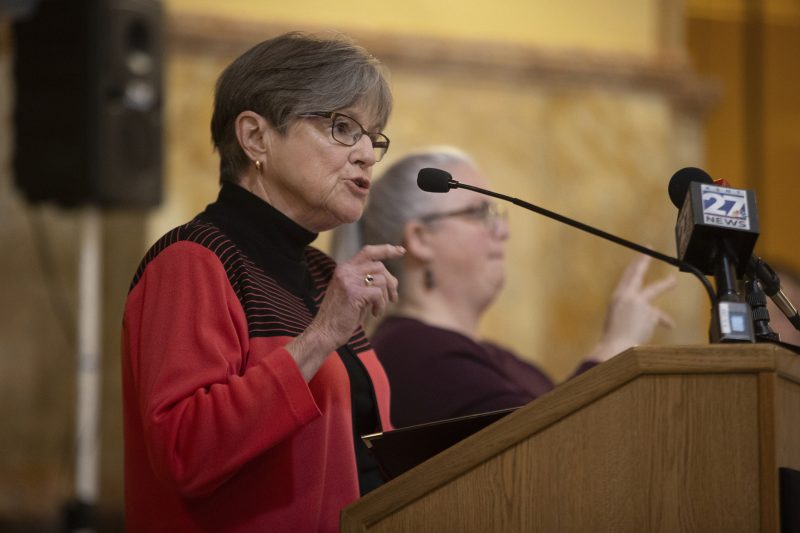
Kansas Governor Vetoes Gender-Affirming Care Ban – GOP Promises Showdown
The Kansas Governor, Laura Kelly, recently vetoed a bill that sought to ban gender-affirming care for transgender youth. This decision has sparked strong reactions from both supporters and opponents of the bill, setting the stage for a potential override by the GOP-controlled legislature.
The vetoed bill aimed to prohibit medical professionals from providing hormone therapy, puberty blockers, or other gender-affirming treatments to individuals under the age of 18. Proponents of the legislation argued that such treatments could have long-lasting and irreversible effects on young people and should be postponed until they reach adulthood.
Opponents of the bill, however, including Governor Kelly, believe that transgender youth deserve access to appropriate medical care that aligns with their gender identity. They argue that denying these treatments can have severe negative consequences for the mental health and well-being of transgender individuals, potentially leading to increased rates of depression, anxiety, and suicide.
Governor Kelly’s veto has been praised by LGBTQ+ advocacy groups and medical professionals who argue that gender-affirming care is a crucial aspect of supporting transgender youth. They emphasize the importance of allowing individuals to access the care they need in consultation with their physicians and families, rather than imposing blanket bans that restrict their options.
On the other hand, Republican lawmakers have vowed to push for an override of the veto, citing concerns about the potential risks and ethical considerations surrounding gender-affirming care for minors. They argue that the decision to undergo such treatments should be made with careful consideration and thorough evaluation, taking into account the long-term implications for the individual.
The debate surrounding gender-affirming care for transgender youth is complex and multifaceted, touching on issues of medical ethics, individual rights, and public health. As the discussion continues to unfold in Kansas and beyond, it is essential for all stakeholders to engage in constructive dialogue and seek common ground that prioritizes the well-being and dignity of transgender individuals. The outcome of this legislative battle could have far-reaching consequences for the rights and healthcare access of transgender youth across the state.
